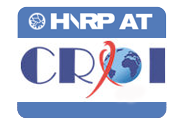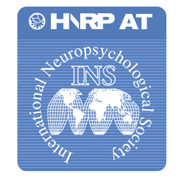David Moore Receives 2013 Psychology and AIDS Distinguished Leadership Award
 Dr. Moore will be honored at the 2013 APA Convention in Honolulu, Hawaii as an emerging leader within the field of neuropsychology. Additionally he had also been recognized for excellence at the Society for Behavioral Medicine 34th Annual Meeting for his abstract submission “Individualized texting for adherence building (iTAB) improves antiretroviral dose timing among HIV+ persons with Bipolar Disorder.”
Dr. Moore will be honored at the 2013 APA Convention in Honolulu, Hawaii as an emerging leader within the field of neuropsychology. Additionally he had also been recognized for excellence at the Society for Behavioral Medicine 34th Annual Meeting for his abstract submission “Individualized texting for adherence building (iTAB) improves antiretroviral dose timing among HIV+ persons with Bipolar Disorder.”
TMARC Represented at the 75th Annual Meeting of the College on Problems of Drug Dependence
TMARC investigators presented at the 75th Annual Meeting of the College on Problems of Drug Dependence (CPDD) that took place on June 15-20, 2013, in San Diego, California. The College has been in existence since 1929 and a major focus of the annual conference is to bring together researchers from industry, academia, and government representing diverse disciplines interested in the biochemical, behavioral, and public health aspects of drug dependence. The TMARC presentations included research related to methamphetamine use and cognition/HIV.
HNRP Investigators Present at the North European Workshop on HIV infection in the CNS (HANSA 2013)
Presentation: HAND is Common and Important in Patients on ART, Igor Grant, MD (PDF)
Drs. Igor Grant and Scott Letendre will be presenting at the third North European Workshop on HIV–infection in the central nervous system (HANSA 2013) to take place in Berlin, Germany, 26-27 April 2013. The aim of HANSA 2013 is to assemble clinicians and researchers together to advance knowledge of ongoing HIV central nervous system (CNS) research. The conference will cover basic issues and controversies.
POZ Magazine Highlights the Research of Several CHARTER Investigators
In the May 1, 2013, edition of POZ Benjamin Ryan presents CHARTER research on aging and HIV in his article "Braving Cognitive Decline: Can People With HIV Fight Back?". Drs. Simpson, MacArthur and Letendre weigh in on several issues associated with HIV and aging including mild cognitive impairment and accelerated/increased rates of disorders such as osteoporosis, cardiovascular disease and B12 deficiency. Co-morbidities such as neurosyphilis and Hepatitis C are also discussed. In general patients with HIV are not experiencing the extreme dementia and the early mortality seen in the past, but living longer with HIV brings other issues that can diminish quality of life.
To read the article click here.






